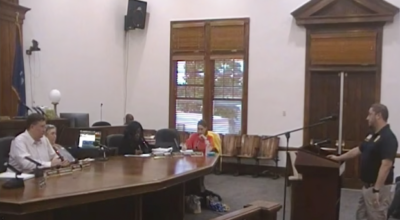Seal joins opioids suit
Published 4:24 am Wednesday, October 11, 2017
Washington Parish Sheriff Randy Seal announced last week that he has joined several other Louisiana sheriffs in filing a lawsuit against drug companies which manufacture, distribute and fraudulently market opioids, leading to increased crime and delinquency throughout Washington Parish.
At no cost to the taxpayers of Washington Parish, he has engaged the services of two legal firms with experience in managing such cases. On behalf of Seal, the lawsuit has been filed by Laborde Earles, a Louisiana accident and personal injury law firm, and Simmons Hanly Conroy, a national law firm that has spearheaded similar lawsuits in other states across the country. Seal’s lawsuit was filed Thursday, Oct. 5, in the 22nd Judicial Court.
In the complaint, Seal and his fellow sheriffs seek relief, including compensatory and punitive damages, for the millions of dollars they spend each year to combat drug-related crimes and the societal economic burden of opioid abuse. The suit argues that these problems were created by the drug companies’ deceptive marketing campaign, which fabricates the safety and efficacy of long-term opioid use.
The defendants in the lawsuit are: Purdue Pharma L.P.; Purdue Pharma, Inc.; The Purdue Frederick Company, Inc.; Teva Pharmaceuticals USA, Inc.; Cephalon, Inc.; Johnson & Johnson; Janssen Pharmaceuticals, Inc.; Ortho-McNeil-Janssen Pharmaceuticals, Inc.; Janssen Pharmaceutica, Inc.; Endo Health Solutions Inc.; Endo Pharmaceuticals, Inc.; Dr. Randall Brewer; Dr. Perry Fine; Dr. Scott Fishman and Dr. Lynn Webster.
The action announced by the five Louisiana sheriffs, including Seal, follows similar lawsuits filed by Laborde Earles on behalf of the Sheriffs of Avoyelles, Jefferson Davis, Rapides and Lafayette parishes last month.
In a separate action, the Louisiana Department of Health has also sued the major pharmaceutical companies, alleging in their complaint, “Drug manufacturers undertook an orchestrated campaign to flood Louisiana with highly addictive and dangerous opioids in an effort to maximize profits above the health and well-being of their customers.”
“Rural Washington Parish is not immune to the devastation which has been wrought by the misuse of opioids throughout our great nation,” Seal said. “For the past several years, we have been forced to devote too many of our meager resources to combat this menace.
“My hope is that this litigation will be a giant step in compelling the drug manufacturers and distributors to be held accountable for the destruction of many lives and the untold burden which they have placed on law enforcement agencies through false misrepresentation of the dangers posed by opioids.”
According to the lawsuits, state data shows that opioid-related deaths in Louisiana have nearly doubled from 155 in 2012, to 305 in 2016. Louisiana is one of eight states that has more opioid prescriptions than it has residents. In 2013, Louisiana ranked first in opioid prescribing according to the Centers for Disease Control Morbidity and Mortality Weekly Report and the Louisiana Department of Health and Hospitals. The state was found to have the sixth highest prescription-per-capita rate at 1.03 pain killer prescriptions written per Louisiana resident in 2015.
According to the CDC, Washington Parish and Vernon Parish had rates of usage higher than the national average in 2015. Washington Parish’s usage rate was between 677 and 958 milligram equivalents (“MME”) per person in 2015, compared to 640 MME per person in 2015 nationally.
The lawsuits allege the defendants aggressively sought to create a false perception in the minds of physicians, patients, health care providers and clients that using opioids to treat chronic pain was safe for most patients and that the drugs’ benefits outweighed the risks. This was allegedly perpetrated through a coordinated, sophisticated and highly deceptive promotion and marketing campaign that began in the late 1990s, became more aggressive around 2006, and is ongoing. Specifically, the complaint alleges that the defendants poured significant financial resources into generating articles, continuing medical education courses and other “educational” materials, conducting sales visits to doctors, and supporting a network of professional societies and advocacy groups — all of which were successful in the intended purpose of creating a new and phony “consensus” supporting the long-term use of opioids.





